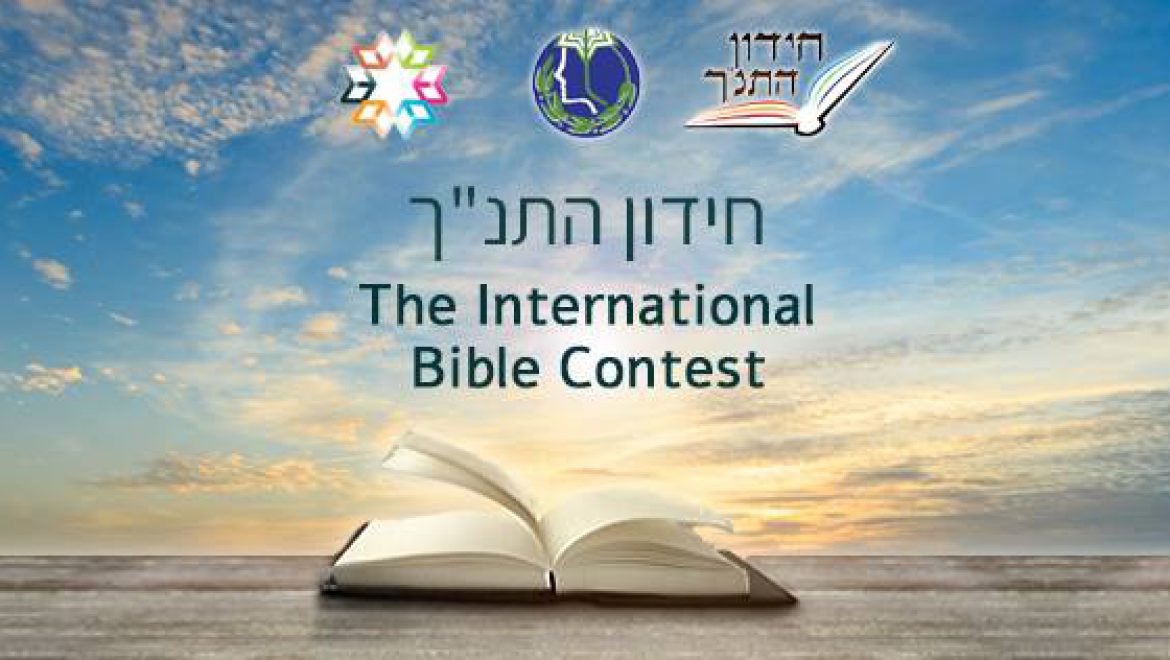
In this personal blog post, Bluma Zuckerbrot-Finkelstein describes the experience of accompanying her son to Israel to participate in the International Bible Contest, an annual competition for Jewish teens competing for the title of Tanach World Champion. She relays the cultural and religious significance of this event, held each year in Jerusalem on Yom Ha’atzmaut.
The International Bible Contest
Many of us are familiar with the Jewish Agency’s tireless efforts to bring endangered Jews to Israel and to successfully integrate them into Israeli society. Others may be familiar with the Agency’s services for at-risk youth, immigrants and the elderly and its programs to revitalize Jewish life and foster Jewish identity all over the globe.
But you may not be familiar with the Jewish Agency’s sponsorship of the International Bible Contest – Chidon HaTanach HaOlami – an annual competition for Jewish teens around the world who compete for the title of Tanach (Bible) World Champion.
My husband and I just returned from an incredibly inspiring trip to Israel, where we experienced the Bible Contest firsthand – our oldest son was one of three U.S. finalists competing for the Bible title. As a national finalist, the Jewish Agency provided him with a once-in-a-lifetime 21/2 week trip to Israel. He joined 74 other Jewish teens from 32 countries who were all national Bible finalists in their respective countries.
The Bible Contest is a cultural staple of the State of Israel. The annual competition is broadcast live on almost all Israeli national television and radio channels on the morning of Yom Ha’Atzmaut (Israel Independence Day) and is streamed online all over the world.
Israelis from all sectors of Israeli society know about the contest and know the names of the Israeli finalists. Good wishes and “best of luck to your son” were extended to us by the immigration officer who stamped our passports as we entered Israel at 3 am as well as by the medics who assisted me when I became dehydrated on an ill-advised hike during a 98 degree heat wave.
From the moment I walked in to the Jerusalem Theatre on Yom Ha’Atzmaut morning, I was overwhelmed by the significance and meaning of the Bible Contest. Waiting on line before they opened the doors, we met parents of contestants from all over the world. We were all Jews, secular and religious, Reform, Conservative, and Orthodox, who have children who cherish the sacred texts of our tradition and who spent the last year deeply steeped in engaging with those texts.
Here we all were, Jews from all over the world, together, on the day that celebrates the re-establishment of Jewish sovereignty in the ancient Jewish homeland, the day that marks the restoration of Jewish nationhood and independence. And how were Israelis celebrating this day? They were not going to the malls for Independence Day sales and doorbusters. They were glued to their television sets, watching Jewish teens display their knowledge and mastery of the Bible.
Israeli culture and society play out in all aspects of the contest. We were not able to secure enough tickets for my brother’s family in Israel so my sister-in-law tried using “protektsia” – “connections” – She knew someone who works in the office of a Member of Knesset. In the end, she could not get any tickets, but unbeknownst to her, her nieces from her side of the family were able to obtain tickets from a different Knesset member. During the contest, even the bantering that typically marks game shows in the U.S., was laden with meaning. For example, Speaker of the Knesset Yuli Edelstein was the lead judge of the contest. Joining him on stage was Jewish Agency head Natan Sharansky. When explaining that he and Sharansky had signed the blank award certificates before the competition, Edelstein turned to Sharansky and said: “Natan, if we were still back in the Soviet Union, we would have filled out the names of the winners before the contest!”
And then there was Israeli Prime Minister Benjamin Netanyahu, who sat a few rows behind us. There was no special section for him. He sat with the Jewish people. Every year, toward the end of the competition, the Prime Minister asks a Bible question to the contestants. Before asking his question, Mr. Netanyahu noted that his own son (who came in third place in the contest a few years ago) did not get full credit for his answer to the Prime Minister’s question. To paraphrase Netanyahu’s comments: “Where else in the Middle East would the son of the head of state not get full credit for the question asked by his father, the head of state? What a democracy we are.”
Indeed, what a democracy. Back in Memphis, I remain inspired by the vibrancy, vitality and meaningfulness of daily Jewish life in the State of Israel.

